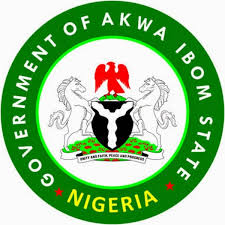In what appears as a smokescreen, Akwa Ibom Government’s main reason in rejecting 10 “old, used vehicles” donated by ExxonMobil for COVID-19 contact tracing is unclear.
The state Commissioner for Information and Strategy, Mr. Charles Udoh had two weeks ago castigated ExxonMobil for living not to its Corporate Social Responsibility by supporting the state government in the coronavirus fight.
Udoh launched the scathing remarks few days to the retirement of Udom Inoyo, an Akwa Ibom son from ExxonMobil as its Vice Chairman on May 1.
The management of ExxonMobil had last Friday reportedly donated WHO-standard RNA COVID-19 test kits for 1,920 tests, 1000 units of sample collection kits, two ambulances, and 15 vehicles to Akwa Ibom government.
In reaction, Patrick Ifon, a member representing Eket Federal Constituency in the National Assembly, slammed ExxonMobil for the donations and urged the state government to reject ‘Refurbished’ Vehicles donated by ExxonMobil as supports to fight COVID-19 in the State.
In a press statement, Ifon said he read on the website of ExxonMobil of their seeming act of benevolence, donation of ambulances, other vehicles, beds and medical supplies to support Nigerian Covid-19 response, Akwa Ibom State inclusive.
He recalled that ExxonMobil, an oil exploration firm with its operational base in Akwa Ibom State, had recently donated a paltry 150 cartoons of Noodles and 100 bags of 50Kg rice to be shared to vulnerable people across the four Local Government making up Eket Federal Constituency in Akwa Ibom State as their own way of living up to the expectations of Corporate Social Responsibilities (CSR).
“As a representative of the people from this core oil-producing region in the National Assembly, it is important to state that these provisions from ExxonMobil is another way of insulting the sensibilities of Akwa Ibom people,” the lawmaker noted.
He said he is aware that the oil giant, has never procured used or refurbished vehicles for their own operations or for their staff. “For that matter, he found it very worrisome, why ExxonMobil should donate to Akwa Ibom State government, refurbished abandoned vehicles that they used for numerous operations in their different facilities across the state about 20 years ago.”
Ifon described the excuse of using them for contact tracing as laughable and demeaning, querying “The beds and mattresses donated are not even fit for the worst correctional homes and are a complete eyesore and disservice to the avowed standards of ExxonMobil. If they could do this with vehicles, how do we trust the test kits donated?”
The National Assemblyman reasoned that the state government deserves the best of medical equipment, vehicles is commensurate with their tranquil working relationship with ExxonMobil in the course of their operations in the region to support the fight against Covid-19, but the Multinational Company chooses to give back to the region used and refurbished vehicles, poor quality equipment and retrenchment of indigenous workers.
He, therefore, called on the Akwa Ibom State Government to reject those refurbished vehicles, antiquated beds and dirty mattresses until ExxonMobil learn to deal respectfully with her host State and Communities.
In what appeared as heeding the message of the National Legislator, Akwa Ibom government rejected the 10 old and used vehicles donated to the state by ExxonMobil for COVID-19 contact tracing.
In a statement signed by the Commissioner for Information, Mr Charles Udoh and made available to newsmen Sunday in Uyo, said government’s decision to reject the vehicles donated to the state last Friday, May 15, 2020, by the oil giant was taken at the state COVID-19 Committee meeting held next day being Saturday.
It reads, “The Akwa Ibom state government has rejected the 10, very old, used vehicle donated by ExxonMobil for use in the COVID-19 contact tracing in the state. “The decision was taken at the state COVID-19 Committee meeting yesterday following an evaluation of the vehicles and other donations to the state by the oil company.
“The vehicles are considered too old and not in good enough operational conditions of withstanding the rigors of contact tracing which they were meant to serve.
”However, the state government has accepted the two ambulances and 20 hospital beds also donated by the oil company, despite the fact that the ambulances are converted buses while the beds are below the standard of those currently in secondary healthcare facilities in the state. ”
The Akwa Ibom state government appreciates the continued support of corporate bodies and private individuals who have so far made cash or other material donations towards the fight against COVID-19 in the state.”
Mobil Producing Nigeria, an ExxonMobil affiliate, and operator of the Nigeria National Petroleum Corporation/Mobil Producing Nigeria Joint Venture had announced a donation of two ambulances, 20 additional vehicles and medical supplies to various state governments and the Nigeria Centre for Disease Control to assist in the country’s fight against the COVID-19 pandemic.
The company explained that Akwa Ibom Government would receive two ambulances for emergency cases and 15 other vehicles, while Rivers State would receiving five vehicles. Medical supplies, including World Health Organization certified COVID-19 test kits, sample collection kits and hospital beds valued at more than N90 million will be distributed to the Nigeria Centre for Disease Control, as well as Akwa Ibom and Rivers states.
Paul McGrath, chairman and managing director of ExxonMobil companies in Nigeria said, “We are actively working with our partner, the Nigeria National Petroleum Corporation and other stakeholders on ways to assist in halting the spread of the virus.”
McGrath said that the NNPC/MPN JV’s efforts are being guided by government agencies’ advice with regard to specific requirements and determining the areas of greatest need.
“Supporting Nigeria’s fight against COVID-19 requires a broad, collective effort that should follow the guidelines established by the Nigeria Centre for Disease Control, as well as the state and federal governments.”

